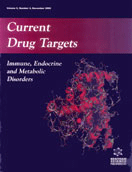Abstract
Chemokines play critical roles in leukocyte trafficking in normal and inflammatory conditions. The primary roles of chemokines are to activate integrins for leukocyte adherence on endothelial cells and to induce chemotaxis of leukocytes in tissue microenvironments. Specificity in leukocyte migration is regulated at multiple levels. First, it is achieved through differential tissue expression of chemokines and adhesion molecules. Second, it is achieved by limited and differential expression of chemokine receptors by leukocyte subsets. Third, combinatorial expression of multiple chemokine receptors and adhesion molecules makes leukocyte migration more specific. Homing of leukocytes into various tissue sites (e.g. inflamed skin, small intestine, mucosal tissues, T cell areas vs. B cell follicles) requires different chemokines and chemokine receptors. Furthermore, distinct immune responses and diseases (e.g. Th1 vs. Th2 responses) involve different sets of chemokines and leukocyte subsets. This review ex amines the recent advances in research on chemokines and chemokine receptors in tissue-specific migration of immune cells, and discusses potential targets of intervention in chemokine-mediated leukocyte migration in normal and diseased conditions.
Keywords: chemokine, chemokine receptor, leukocytes, lymphocytes, diseases, trafficking
 1
1


















